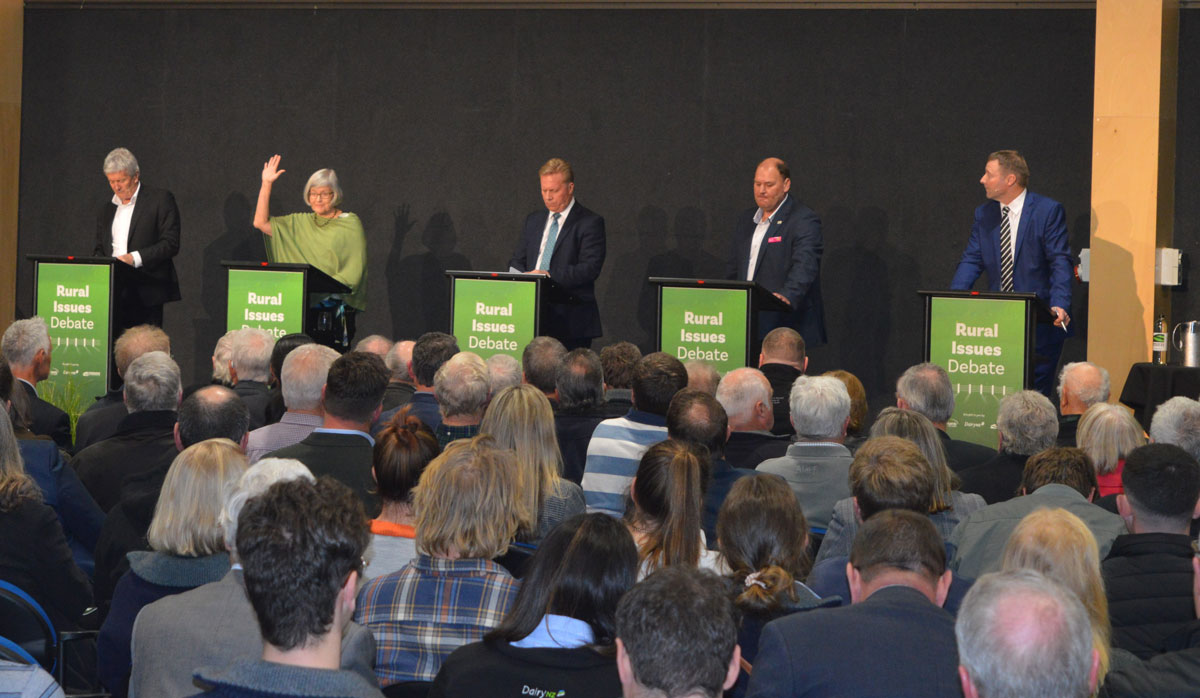New minister's hort focus
The new Minister of Horticulture, Nicola Grigg, says the reason that she came into Parliament was because of her interest in and commitment to agriculture.
OPINION: A recent pre-election poll showed something rather interesting: businesses are more optimistic about the future than they were last year.
When Baker Tilly Staples Rodway surveyed around 750 businesses across the country, 85% said they thought the Government’s management of the economy was poor, a huge jump from just three years ago.
However, the surprise was that fewer businesses believe the economy will worsen over the next 12 months. In fact, more than a quarter of businesses are feeling things are about to get better – a 50% improvement on the gloom of 2022.
If you asked Hawke’s Bay farmers, on the other hand, the results would probably look a lot different.
Based solely on current figures, many Hawke’s Bay farmers have experienced similar trading results to last year. Then there are some farmers whose results have exceeded last year’s significantly, but that is misleading when it comes to future business health.
The reality is that the profits are due to selling additional capital livestock and receiving insurance proceeds. Meanwhile, these flood-hit farms have limited or no fences to keep livestock in, tracks to access the land easily have been washed away and feed pasture has been damaged by slips and flooding. While the money and the support might be there to do the repairs, the weather hasn’t played ball, meaning thousands still needs to be spent on fences, culverts and tracks once the rain clears.
Farmers who have received sale proceeds from capital livestock and insurance payouts will have increased taxable income, healthy bank accounts and be cashflow positive at the end of the financial year. But it will be in the next financial year when significant costs are incurred, such as replacement capital livestock, new fencing, track and culvert repairs, that the true cost of the cyclone will be felt and the reality sets in. These farmers also need to be mindful that there will be an increased tax liability due unless this tax has been able to be deferred.
All this comes as costs increase, and revenues have dropped across the board. It’s uncertain whether dairy prices will continue to drop further, after a slight recent rebound. Around half of our survey respondents believe they will, while many weren’t sure. Meanwhile, the percentage of people expecting increased exports plummeted 20%.
What is certain is that next year’s balance sheet won’t look so good for farmers affected by the floods – and aside from fencing gangs or civil engineers, that’s likely to have negative impact on regional businesses too.
As the Federated Farmers report found recently, farmer confidence across the country is at a 14-year low, with 45% of farmers expecting to spend less in the next 12 months, against 35% expecting to increase it.
So, what are farmers calling for?
 |
|---|
|
A recent rural issues debate in Hamilton: Farmers will be looking for the incoming government to deliver on these promises. |
The food and fibre sector is still the backbone of New Zealand’s economy, responsible for $57.4 billion worth of exports in the year to June, or 11% of GDP. To support a healthy national economy it’s key that whichever party (or parties) win this election, they address the biggest issues facing the rural communities devastated in this year’s weather events. These include:
Not every farmer is in the same situation, and a change in global economic conditions could bring a welcome turnaround in the outlook for the flood-hit rural sector. Increased positivity about the year ahead may signal anticipation that a change of government is also coming. Whatever the result at the polls, the biggest win for farmers will be more support during the six months ahead.
Bevan Condin, is director, Baker Tilly Staples Rodway, Hawke’s Bay
Managing director of Woolover Ltd, David Brown, has put a lot of effort into verifying what seems intuitive, that keeping newborn stock's core temperature stable pays dividends by helping them realise their full genetic potential.
Within the next 10 years, New Zealand agriculture will need to manage its largest-ever intergenerational transfer of wealth, conservatively valued at $150 billion in farming assets.
Boutique Waikato cheese producer Meyer Cheese is investing in a new $3.5 million facility, designed to boost capacity and enhance the company's sustainability credentials.
OPINION: The Government's decision to rule out changes to Fringe Benefit Tax (FBT) that would cost every farmer thousands of dollars annually, is sensible.
Compensation assistance for farmers impacted by Mycoplama bovis is being wound up.
Selecting the reverse gear quicker than a lovestruck boyfriend who has met the in-laws for the first time, the Coalition Government has confirmed that the proposal to amend Fringe Benefit Tax (FBT) charged against farm utes has been canned.